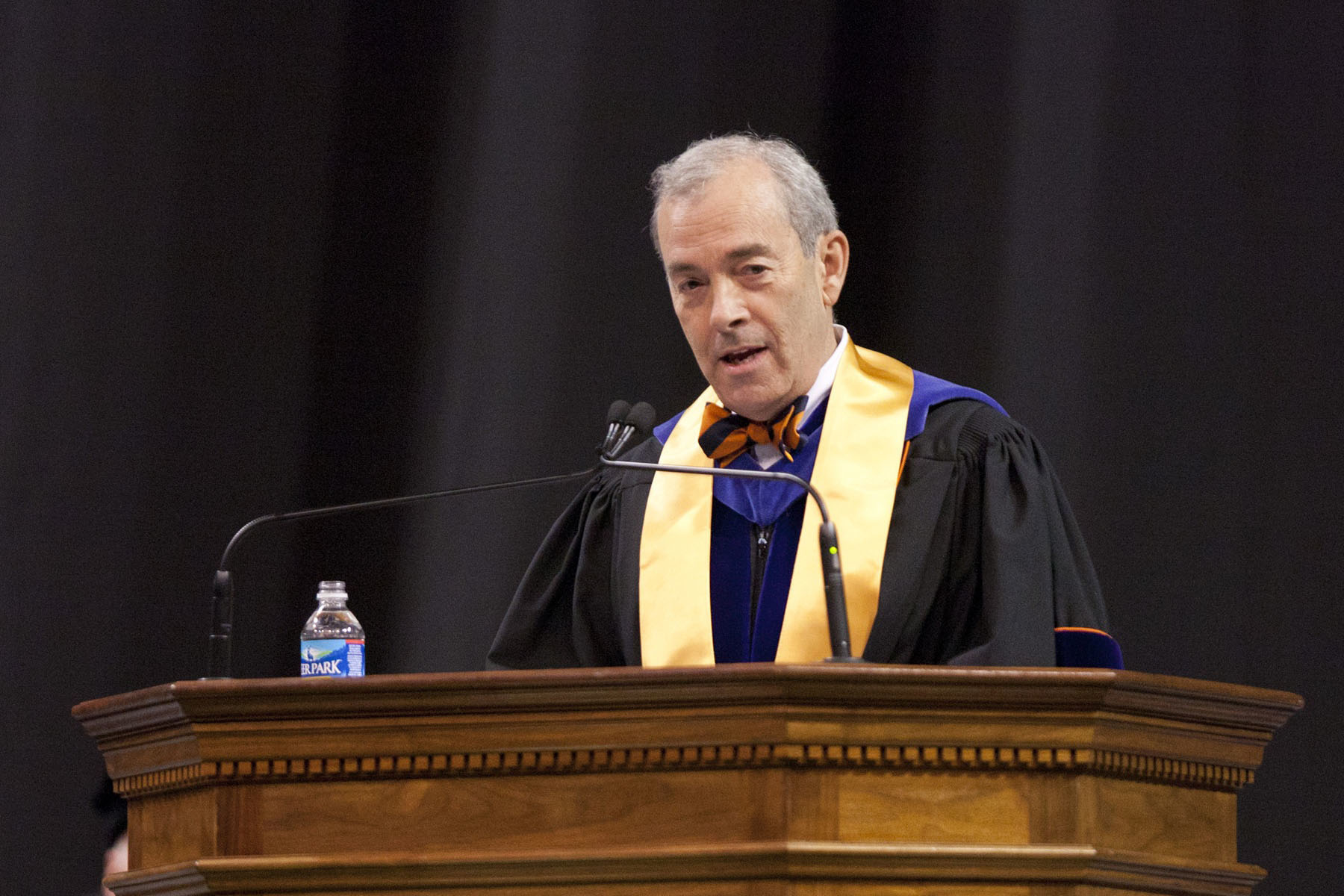You have to make mistakes to learn, Vice Provost J. Milton Adams told members of the class of 2013 at Friday's Fall Convocation in the John Paul Jones Arena.
As a graduate student in biomedical engineering, Adams recalled, he had set about researching and designing a method to improve kidney dialysis. "Mind you, this was a theoretical problem," he said. "No one was crazy enough to think I might try this on a real patient."
Several weeks later, he presented his first attempt to his professor. "He looked for a few seconds. He pointed to the flow rate going to the dialysis machine and said, 'Milton, you realize you have bled your patient dry in about two minutes?'"
The experience didn't do much for his confidence, but it did come in handy many years later when, as the professor, he worked with other faculty and students on a heart pump. "I am reminded of the aphorism that good judgment comes from experience and experience comes from bad judgment," he said.
Adams was the keynote speaker at Fall Convocation, at which Intermediate Honors were awarded to third-year students who are in the top 20 percent of their class after four semesters at U.Va. Winners of faculty teaching awards were also recognized, and Marva A. Barnett and R. Jahan Ramazani received the 2011 Thomas Jefferson Awards, the highest honor U.Va. bestows on its faculty.
Adams, who received his Ph.D. from U.Va. 1971, is a professor of biomedical engineering and electrical and computer engineering, and he was appointed vice provost for academic programs in 2003. President Teresa A. Sullivan selected him as interim executive vice president and provost in May, until the arrival of John D. Simon of Duke University, who assumed the post in September.
As Sullivan did on Saturday in her Family Weekend address in Old Cabell Hall, Adams focused his remarks on the importance of research to not only solving problems, but also becoming truly educated.
"A culmination of learning is to understand what you believe in and why you believe it – in epistemological terms, justified belief rather than opinion – and that means asking good questions," he said.
During his long U.Va. career, Adams has advanced undergraduate research initiatives, including the three-year-old Jefferson Public Citizens program. He issued a call for each student to engage in scholarly research or a project – "something that captures your emotional interest," he said. "For me it was biomedical engineering, about how the body works, but for you – it has to be your question."
Solving the world's complex, ill-structured – or "wicked" – problems, Adams said, requires the ability to confront conflicting or incomplete information, unspecified parameters, and solutions that may or may not work. "Solutions will be derived or discovered by people who possess good judgment to ask insightful questions," he said.
Read the literature, understand the issues and determine the next important step, he advised. Find faculty who share your interest, and outline your project in writing. Apply for research funding through any number of programs, such as the Jefferson Public Citizens or Harrison Undergraduate Research Awards.
"Right now, right here, at the University of Virginia, you have access to an extraordinary concentration of people and resources that can develop your intellect and judgment," Adams said. "I sincerely hope that you will soak up the opportunities that are made available here."
Media Contact
Article Information
October 28, 2011
/content/research-key-undergraduate-experience-and-education-adams-says

